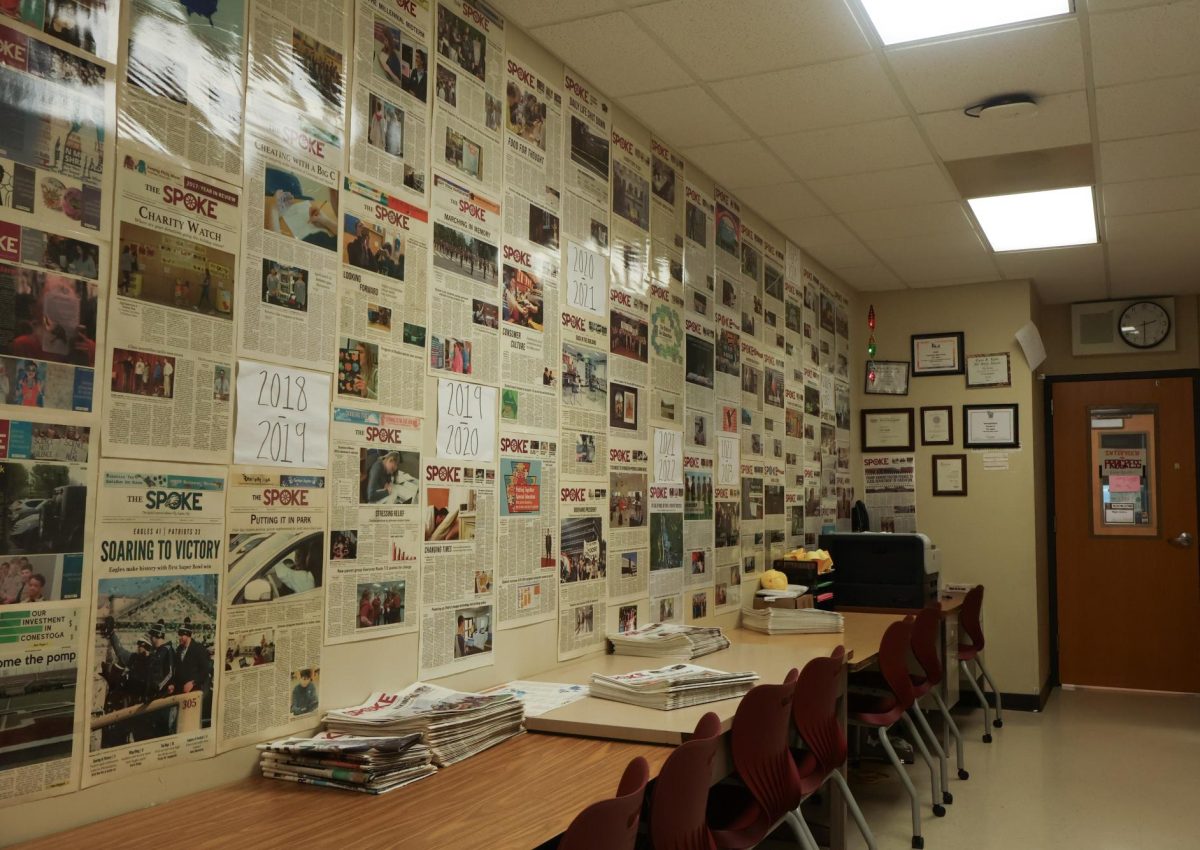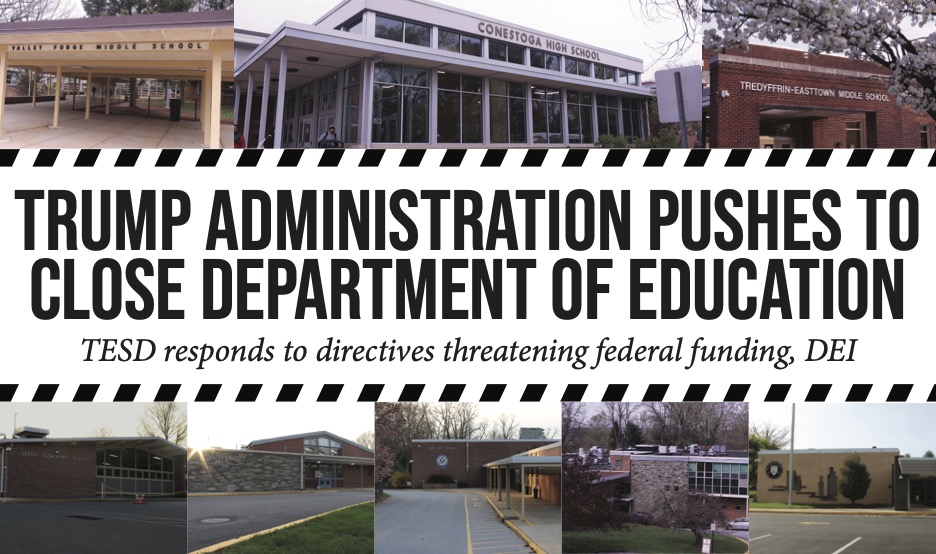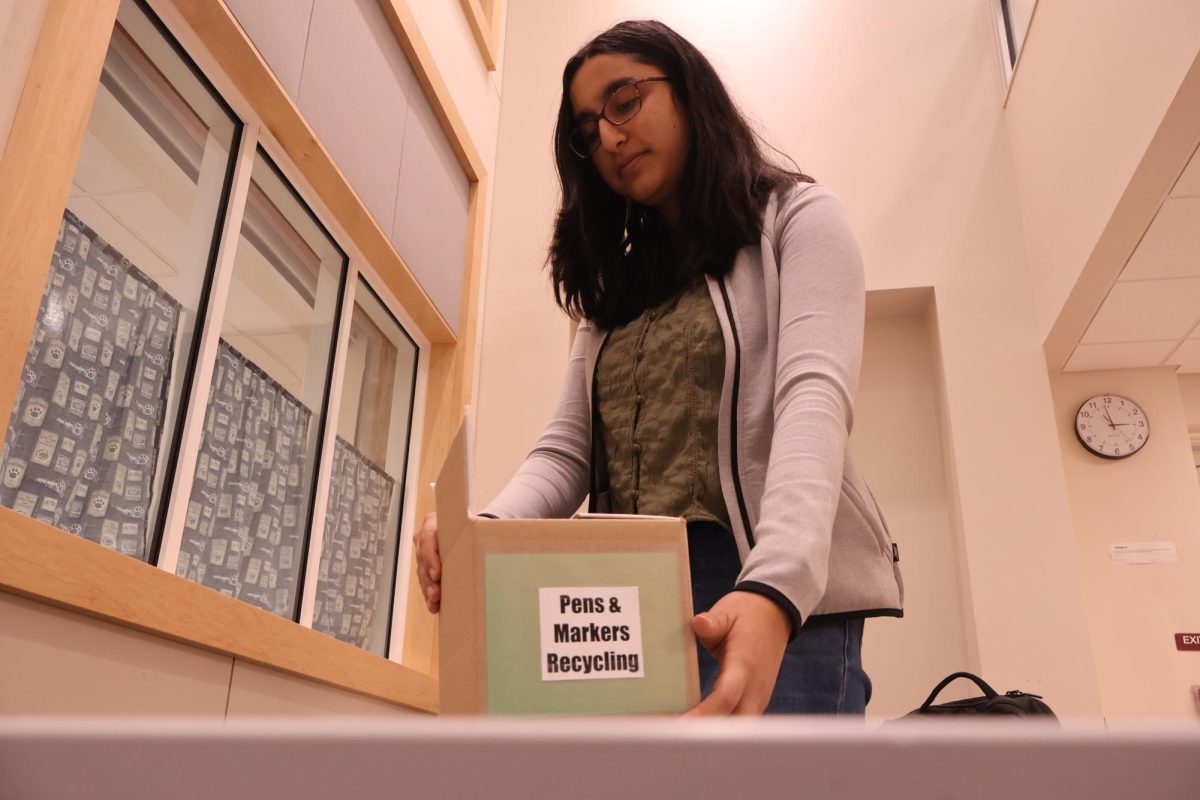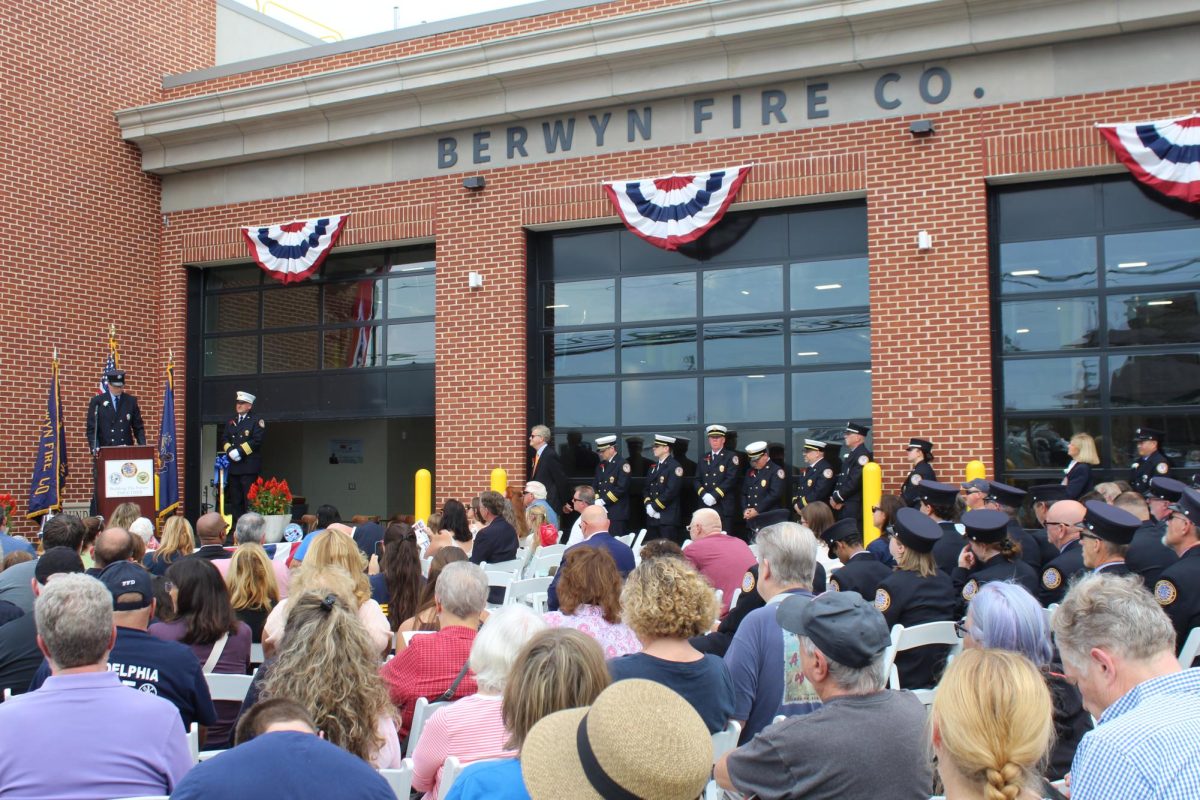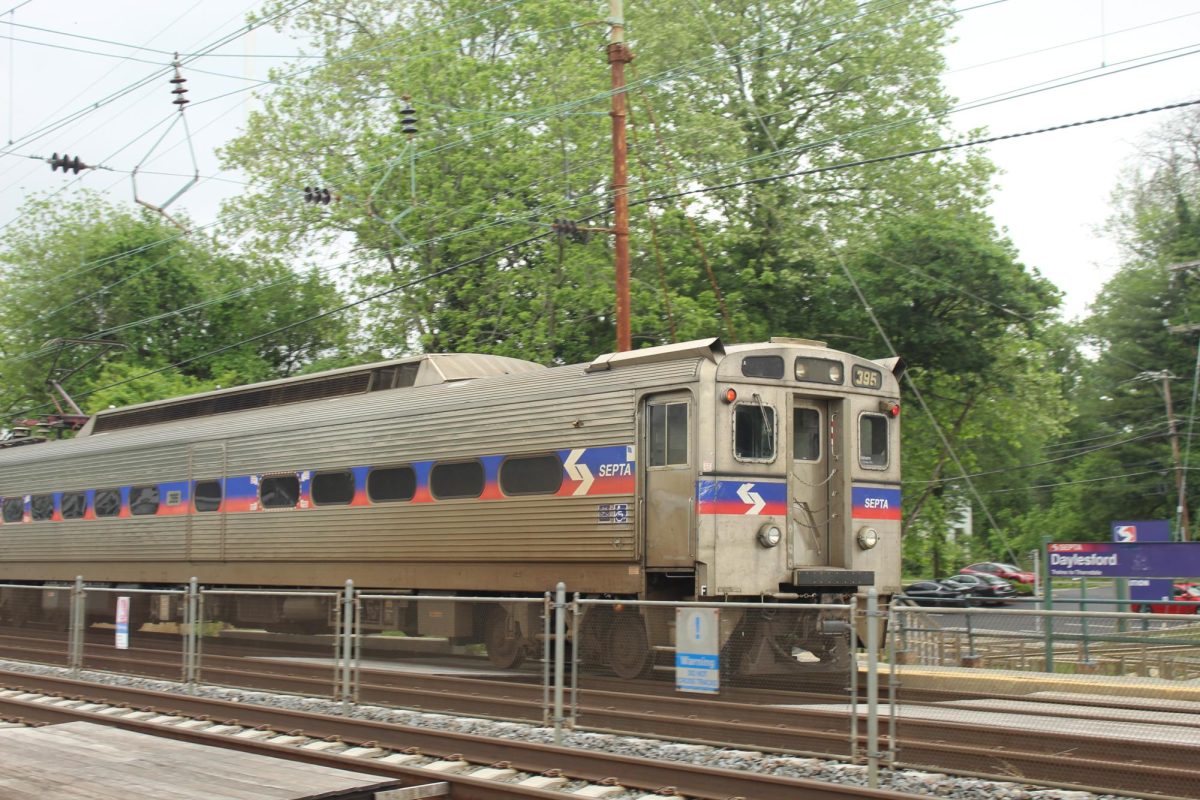Standing by hand-painted signs urging viewers to “Save the train,” senior Daniel Loza waits at the Paoli SEPTA station to catch a train for his orchestra rehearsal in Center City, Philadelphia. In August, as SEPTA started enacting service cuts, Loza joined other community members with growing concerns over the transit agency’s plans.
“When (SEPTA) announced that they were planning to eliminate (the Paoli-Thorndale) line in January, I thought it was a bit ridiculous, because the Paoli line is one of the most heavily used ones in this entire Philadelphia area, but it would also just make getting around a lot harder,” Loza said.
On Sept. 14, following a court order, SEPTA restored full service. However, that same day, it also moved forward with a 21.5% fare increase.
Within the past year, SEPTA enacted a pay freeze, stopped hiring non-essential employees, refrained from traveling to conferences and began implementing plans including service cuts and fare increases to reduce its budget gap. SEPTA Senior Press Officer John Golden said that the transit agency struggled with decreased ridership during the COVID-19 pandemic and has faced rising operational costs since then.
“In November of 2024, Gov. Shapiro redirected $153 million in highway capital funds to SEPTA, which allowed us to avoid severe cuts and fare hikes and continue to operate for the rest of the fiscal year,” Golden said. “But that was kind of only a quick fix so to speak. Since at least the summer of 2024, we’ve been warning anyone who would listen of significant service cuts and fare increases due to an underfunding situation.”
By the start of its 2025 fiscal year on July 1, SEPTA faced a $213 million budget deficit. State lawmakers, amid a month-long budget impasse, were not able to agree on a funding solution before SEPTA decided to move forward with service cuts.
SEPTA’s originally planned cuts included a 20% service reduction in August, followed by a 21.5% fare increase in September. The transit agency moved ahead with its plan on Aug. 24 and 25, eliminating 32 bus routes and shortening 16 more, reducing service on other routes and ending all special service, such as Sports Express. A second round of cuts would have begun in January 2026, removing an additional 25% of service and eliminating the Paoli-Thorndale line, which services the Main Line.
George Bochetto, co-founder of the Philadelphia law firm Bochetto & Letz, filed an emergency lawsuit on Aug. 27 to the Philadelphia Common Pleas Court. He presented a case claiming that SEPTA created a false narrative of an inability to pay for service to riders in order to extract more funds from the state legislature.
“When we examined witnesses in court, when they were on the witness stand under oath, it was plainly obvious that they had ample funds in a bank account known as the stabilization fund so that they could have maintained full service to all the riders even though they’re still going through this budgetary process with Harrisburg,” Bochetto said. “That fund that they have has over $300 million in it, and it was expressly created so that if there was a budgetary delay, they would have the reserve funds to continue full service with all riders while they await the budget outcome.”
The court conducted two days of hearings following the lawsuit and decided to impose a temporary injunction, a court order that barred SEPTA from cutting additional services to riders. After another hearing with Bochetto and his team on Sept. 4, Judge Sierra Thomas Street issued an order for SEPTA to restore all service cuts but allowed fare hikes to continue.
“I hate to say it, and I know it isn’t necessarily a good reflection on government officials and everything, but they were lying to the public about their financial status,” Bochetto said. “We really called SEPTA out and stopped what was a very painful series of cuts in services, particularly to inner city residents, minorities, low-income people — they were affected the most. They were paying the highest price because that’s where most of the cuts took place. With regard to the fare increases, the case is not over. We’re now going to show how the fare increases are totally unnecessary and illegal, and we’re going to try and get those eliminated as well.”
SEPTA transfers funds, reverses cuts amid budget impasses
Since SEPTA warned of potential service cuts earlier this year, state legislators have been unable to agree on a funding plan. With a one-seat Democratic majority in the House and a Republican majority in the Senate, lawmakers were at an impasse to fund SEPTA’s $213 million deficit. The Democratic House passed five transit funding bills, including House Bill 1788. The piece of legislation intended to raise the percentage of state sales tax revenue allocated to the Public Transportation Trust Fund from 4.4% to 6.15%, providing an additional $292.5 million for state transit agencies.
Democratic state Sen. Nikil Saval serves Philadelphia County and is an active advocate for sustainable state funding for SEPTA. He said that some Republican lawmakers are not in favor of more state funding for transit programs.
“The House has passed transit funding several times, different versions of this kind of sales tax proposal, which would take revenue that we already get from sales tax collections and devote a higher proportion of it to public transit, including SEPTA,” Saval said. “There seems to have been continuing resistance on the part of Republican legislators to new transit funding.”
The House bills stalled in the Senate. Some Republican legislators supported the use of capital funds to cover the deficit but maintained that safety and accountability reforms must accompany the funding.
In response to the judge’s reversal, SEPTA sent a letter on Sept. 5 to the Pennsylvania Department of Transportation requesting to transfer $394 million of its capital budget funds to operating funds. On Sept. 8, the Shapiro administration directed the department to approve SEPTA’s request to use capital funds. The approval gave SEPTA the flexibility to transfer money for long-term projects, such as bridge repair, trolley modernization and new equipment, to be used for its operating expenses such as payroll, fuel, cleaning and maintenance. According to Golden, the transferred funding and revenue from the fare increases will help SEPTA avoid service cuts for the next two years.
“At that point we were pretty much forced to go to PennDOT or the state of Pennsylvania and request a waiver to use those funds from our capital budget program and transfer that into our operating budget,” Golden said. “It (the transfer is) not really a solution because, again, we’re looking for recurring sustainable funding, not these quick fixes that will just buy us time. So, we’re still going to keep working with the legislators in Harrisburg to secure that reoccurring sustainable funding.”
Students, community members face transportation challenges, concerns
SEPTA’s service cuts and fare increases have affected riders in the Tredyffrin/Easttown area. Additionally, community members such as Keval Parikh, a Conestoga parent and day-to-day SEPTA commuter, have had concerns about the effects of decreased public transportation on the environment.
“It (SEPTA) is for everyone, from young to old, for disabled, for college students and for people working. It connects the suburbs with downtown, and it’s all so important,” Parikh said. “It reduces your driving, it reduces pollution, and it’s cost effective as well. The center city areas are very expensive for parking. Plus, it is time efficient. (From) my home to my office, it’s just 42 minutes. If I go by car, it would be more than an hour and a half in traffic, so it’s the best service I feel.”
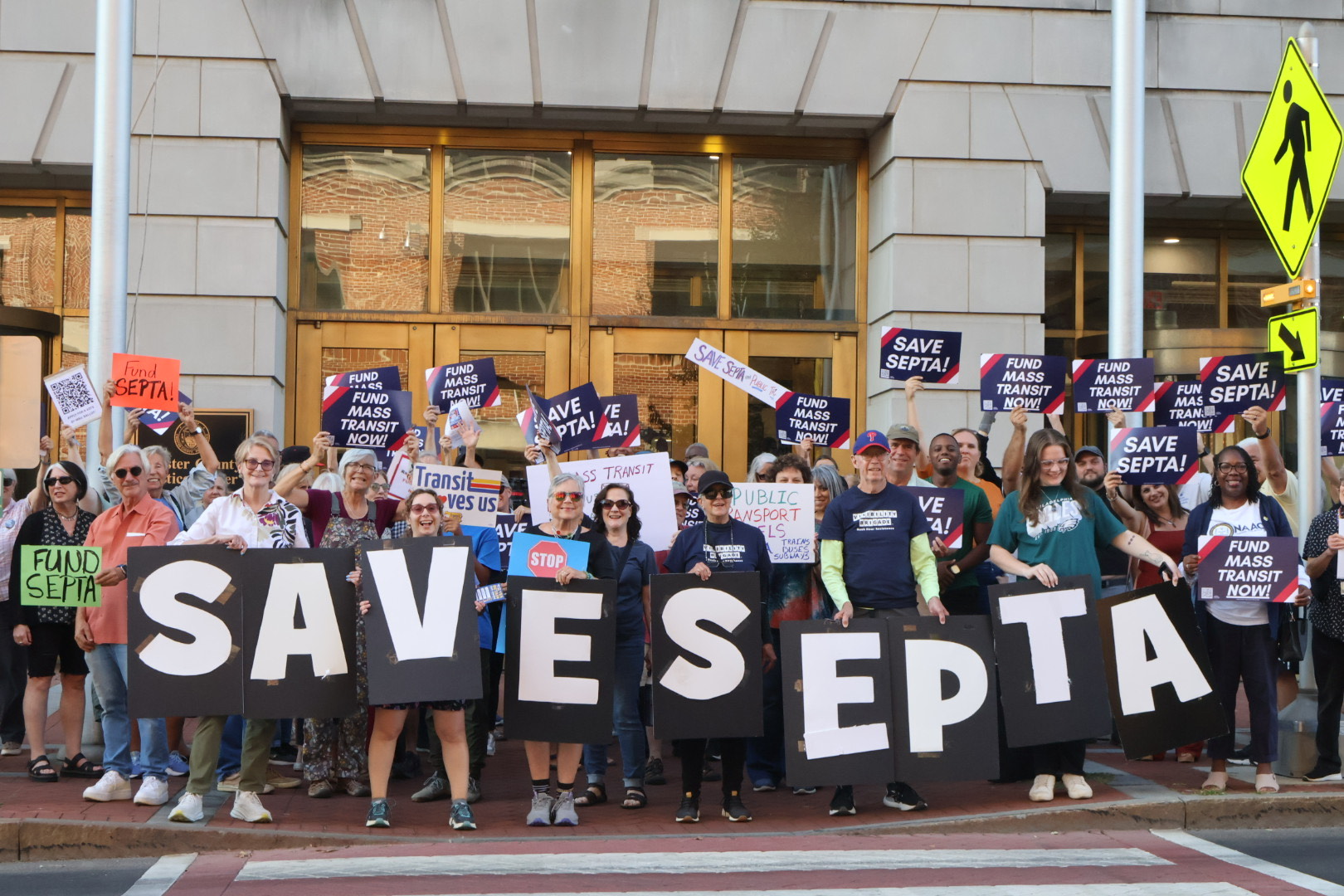
Junior Danyan Yang is co-president of environmental club Greening ’Stoga Task Force. She feels that, despite the restored service, the increase in fare prices will also cause economic pressure on commuters.
“Some people don’t have the option to drive because they might not have a car. They might not be able to pay the gas prices. So I feel for people to make their living that’s one thing,” Yang said. “Then another thing, just coming from an environmental perspective, is that people who want to drive less and be more eco-friendly want to take the train, but sometimes because of those prices, it’s so hard.”
In addition, Loza sees the fare increases as a potential barrier for accessible transportation and a cause for major disruptions in daily life.
“There’s a lot of people in the city who rely on SEPTA to get to work. And even like a dollar increase, if they have to pay that extra dollar for every single rider or whatever the increase was,” Loza said, “I think that would definitely affect people financially.”
Golden recognizes the fare increase’s negative effect on commuters. He also sees the increase as essential for SEPTA to continue its services.
“Nobody likes to pay more for the same service, but we believe that those fare increases were necessary to sustain service and sustain our operating status. It’s been a mixed bag,” Golden said. “Some people are very much supportive of SEPTA, and they understand that SEPTA is an economic engine that drives the rest of the Commonwealth. Other people are a little bit upset. They don’t want to see fare increases. But I know most people are very glad, at least, the service cuts are going to be reversed.”
While the services have been restored, Saval believes that the uncertainty about SEPTA’s future has caused concerns among community members.
“I’ve spoken to a number of constituents over the last several days since it started to become clear. Many feel that at the one hand they are grateful that the cuts will be temporarily reversed, and I think they feel angry that there wasn’t a more permanent solution,” Saval said. “People understand pretty well that taking money from maintenance, safety and future upgrades will ultimately harm SEPTA’s ability to function in the long run, and that this just kicks the can down the road. So people are frankly upset, and I think they’re right to be.”
Advocates, legislators push for a long-term funding solution
Throughout SEPTA’s budget crisis, various riders and advocates have been urging state lawmakers to agree upon a plan to give the transit agency continuous, long-term funding. Parikh reached out to state representatives Ed Neilson and Chrissy Houlahan through email and received positive feedback stating that they were working towards finalizing a solution. Saval said that his office has also received more than 10,000 emails and other forms of outreach from riders.
According to Bronskill, more than 30,000 people have contacted their elected officials through letter templates provided by Transit Forward and Transit for All PA, another coalition supporting public transit.
“I don’t think we would have gotten to the urgency of that political decision if it were not for so many people speaking up,” Bronskill said. “I now think we have the opportunity, whether this gets solved in two weeks or two months or two years, to build the coalition. It’s going to make sure those cuts never happen again.”
Transit Forward has also done more than 50 canvases directly with SEPTA riders and organized rallies and events such as Transit Tuesday, during which constituents spoke with office staff and state lawmakers who did not vote for transit funding solutions. The coalition plans to continue calling attention to SEPTA’s crisis by planning monthly days of action for participants to learn advocacy skills.
Various state legislators are also taking action to advocate for the long-term SEPTA funding, including supporting lobbying efforts and rallies to pressure lawmakers to come to a decision. Rep. Malcolm Kenyatta walked from Philadelphia to Harrisburg during Labor Weekend to call legislators’ attention to SEPTA funding plans. He feels that young people play an important role in advocacy for the transit agency.
“You (young people) are not some far-off future. You are the right now, and I hope that in hearing that, you know you have a lot of power in this situation,” Kenyatta said. “There’s a reason that people fight young people and fight your energy and your passion and your commitment, because they know that if you’re involved and if you speak with that moral clarity that too many adults are missing, that it threatens their chokehold on power.”
Despite recent challenges, Yang is hopeful that the involvement of youth and other riders can affect future public transportation legislation.
“What really keeps me optimistic is the vision that it’s not impossible for us to completely overtake what we have right now and create a public transport system where people don’t have to pay entire fortunes to get a ticket and take the train, where people can have these high speed trains that get to places in 40 minutes rather than three hours,” Yang said. “Just envisioning that future is what excites me. I think it’s possible if we put enough pressure on the government and really hold this issue to our hearts.”
Ashley Du can be reached at [email protected].
Tvisha Jani can be reached at [email protected].
Paige Vachris can be reached at [email protected].




